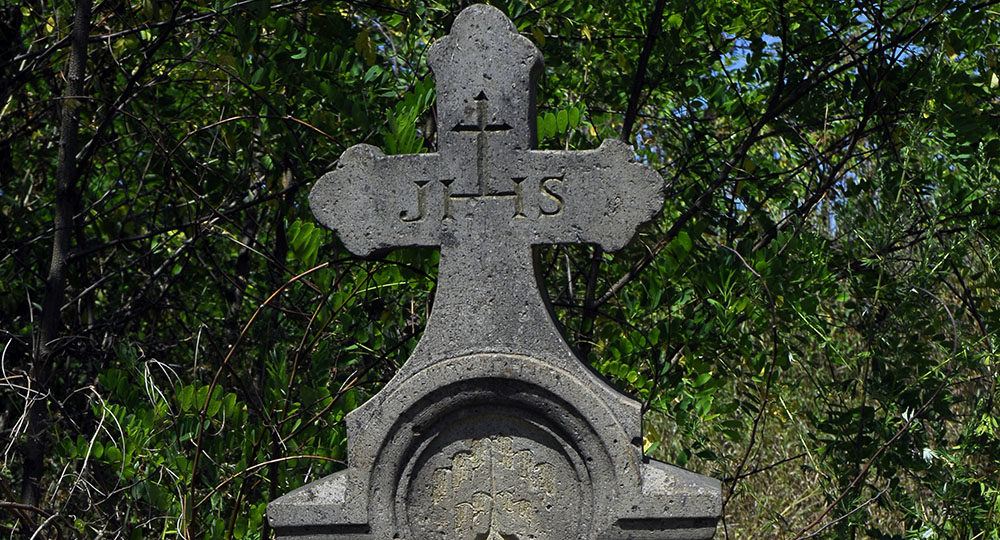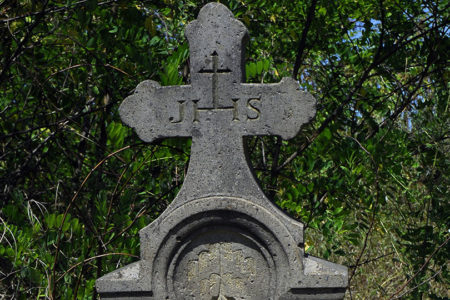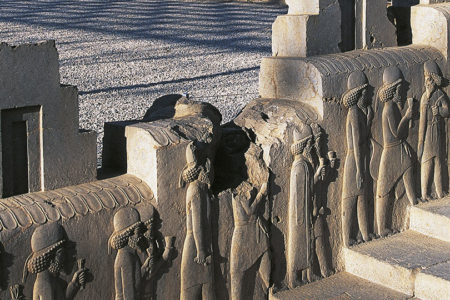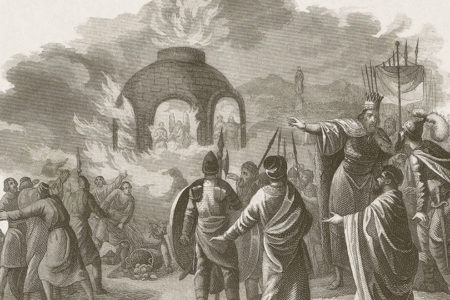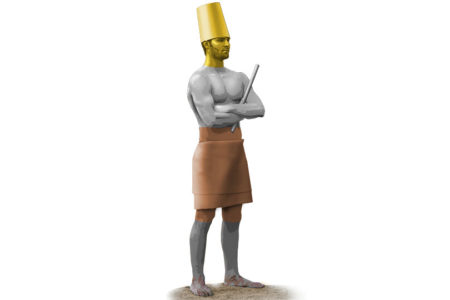Reading a Premature Obituary
The note read, “Dr. Sidlow Baxter passed away in Minneapolis last week. Funeral arrangements pending.” Word of the death of Dr. Baxter, a personal friend and unqualified favorite of the congregation I pastored at the time, was a shock.
The message arrived Wednesday night before prayer meeting, and it was suggested that I read the announcement and ask prayer for his widow, Ethel. But something caused me to hesitate, and I decided to wait until the next day and call the Baxter home in Santa Barbara, California.
When I called, the phone was immediately picked up by Mrs. B. with a cheery greeting. “Hello Elwood. So glad to hear from you. I’ll call Sid.”
The question now was how to break the news of the untimely announcement to the declared deceased. After a few halting stabs at small talk, I arrived at the point. “We received word last night that you had passed away in Minneapolis.”
There was a long silence. Then came a somewhat somber, theatrical reply. “Oh, Elwood, it sounds like a grave situation. But I must say, it’s somewhat premature.”
That episode came to mind recently as I read the rash of obituaries for Christianity in America coupled with announcements of the dawn of a new “post-Christian” era. And, as with the premature posting of my friend’s departure, the pronouncements are vastly overstated.
Nothing New Here
There is nothing revolutionary in the notion that atheism is slowly winning the day, despite a rise in the number of people declaring themselves atheists. Nor is it novel that people believe “provincial,” traditional, Western Christian values are going by the boards.
Many of us remember when the “flower children” of the 1960s revered the hedonistic, “God is dead” howlers as avant-garde soldiers of the future, liberators of a generation that had been stuck in the mud of orthodox Christianity for too long. Interestingly, those who fancied themselves dancing on deity’s grave and initiated what became the “Godless Christianity movement” were pseudotheologians at the United Methodists’ Emory University in Atlanta, Georgia.
While we recognize there is nothing new in the post-Christian mindset’s rejection of traditional religious affiliations, there is a very great difference in how the new cultural state of mind is being expressed.
A sentence in John Meacham’s April 13 Newsweek article, “The End of Christian America,” tells the story. Meacham interviewed R. Albert Mohler Jr., president of The Southern Baptist Theological Seminary in Louisville, Kentucky, who analyzed the differences between today’s trends and the ’60s “God is dead” movement:
“The post-Christian narrative is radically different; it offers spirituality, however defined, without binding authority,” he [Mohler] told me [Meacham]. “It is based on an understanding of history that presumes a less tolerant past and a more tolerant future, with the present as an important transitional step.” The present, in this sense, is less about the death of God and more about the birth of many gods [emphasis added].
Strikingly revealing to the biblically literate is Meacham’s reference to this movement being “about the birth of many gods.” It is nothing less than a quest to return to paganism (many gods) rather than adhere to the monotheism that has shaped and maintained Western and American society. In truth, it was the Christian message that freed millions enslaved by paganism, providing for them a better life in Christ. This rapturous rush to reinstitute the search for many gods is not the road to a better future; it is a catastrophic regression into a moral and spiritual abyss.
Larger Implications
One of the darkest periods in Israel’s history came in the days of the judges. As the last verse in the book of Judges declares, “In those days there was no king in Israel; everyone did what was right in his own eyes” (21:25).
Every man was out for himself, with no guiding hand of final authority in the areas of belief, conduct, values, ethics, or moral obligations and responsibilities. Matters were corrected only when God in His forbearance stepped in through appointed deliverers and brought order out of chaos.
In the current cultural context, the verse calls attention to the words of American President Barack H. Obama when he startled many by proclaiming in a speech in April in Ankara, Turkey, that America is no longer a Christian nation but “a nation of citizens who are bound by ideals and a set of values.”
By whose ideals and set of values? If we are no longer bound by historic Judeo-Christian fundamentals of governance, by what are we bound? We certainly cannot say we have common values if we are merely a nation of citizens with communal and personal differences regarding what constitutes right and wrong.
A Reuters article that ran in The Washington Post on May 5 reported that a 30-year-old man was stoned to death in Iran for adultery. The article said that, according to Iran’s Islamic Sharia law, men convicted of adultery “should be buried up to their waists and women up to their chests for stoning. Stones used should not be large enough to kill the person immediately.”
Although perhaps extreme, the case illustrates the diversity of ideals and practices that can exist within “a nation of citizens” who hail from a variety of cultures and customs contrary to those sanctioned under American constitutional law.
At issue are important questions: What rules will apply? By what standard will they be applied? Who will be the judge of what’s appropriate? We may yet evolve into a nation of fiefdoms where every immigrant segment and religious sect implements its own rules; and if such would ever become the case, we can kiss goodbye the America we have known and loved.
Former presidential candidate Gary Bauer spoke for the vast majority of Americans when he wrote the following:
America is a Judeo-Christian nation, built upon the values in the Ten Commandments. If you asked Americans, “Do you consider America to be a Judeo-Christian nation? ” I believe the percentage of folks agreeing with that statement would skyrocket.1
A recent Newsweek poll, Bauer said, “found that at least 62% of Americans do think of the United States as a Christian nation.”2
Battleground
No matter what liberal politicians, news media advocates for radical change, or social revolutionaries sell to the uninformed public, there can be no better, brighter tomorrow through undefined change for change’s sake. Our Judeo-Christian heritage is our anchor of hope, stability, and continuity. It took centuries to build. Yet it can take only months to destroy. And for all the talk about hope; progressive change; and the brave, bold march into the future, the only word that comes to mind about what lies ahead is uncertainty.
Now, about the well-oiled fiction that the church is sucking its last breath before slipping into a coma. We don’t believe it for a minute. Yes, war has been declared on the followers of Christ. And yes, it will intensify. But it is essential to understand that the most violent assaults are not being leveled at the church in general but at the segment that is evangelical—particularly the Christian Zionists.
These are the Bible-believers who have not joined the book burners at the festivals of denial. Nor do they chant for change or long for a rollback into the murky world of self-inflicted neopaganism. These are the people whom the far left targets and the religious lynch mobs delight in branding as intolerant obstructionists whom the country would do well to get rid of.
These Bible-believers are no different from the millions of true followers of Jesus who have marched with Him across the centuries. They are honest people who go to work every day to support their families. They love their country, fight for her and the freedom of others, pay their taxes, go to church on Sunday, listen to what the Book has to say to them, and believe it. You’ll find the names of people just like them in the Hebrews 11 chronicle of the Bible’s “hall of heroes” and on the pages of John Foxe’s Book of Martyrs.
They show up every year in Poland to join Holocaust survivors for the March of the Living. Their cars still fill church parking lots across this country; and as the most church-going people on earth, they are charitable; considerate; and on their knees consistently for national, international, and local leaders—even for those with whom they disagree.
They are not sinless, plaster saints but ordinary people who will never make the headlines or TV newscasts except to be caricatured or ridiculed as misfits taking up space where they are not welcome. However, they are still here; and they compose the fabric of a real world of compassion, faith, and fidelity to truth—a world the radical change-makers do not know. Nor, if things continue as they are, will they ever know.
Nobel Prize recipient and Holocaust survivor Elie Wiesel, wrote,
In those times there was darkness everywhere. In heaven and on earth, all the gates of compassion seemed to have been closed. The killer killed and the Jews died and the outside world adopted an attitude either of complicity or of indifference. Only a few had the courage to care.3
Among those who had the courage to care was a young woman unheard of until a short time ago. Her name was Irena Sendler. We’ve written of her inspiring story on these pages before, but I feel compelled to include parts of it here.
When the Nazis locked up Jewish people and their families in the Warsaw Ghetto in Poland during World War II, it was a death sentence for them all. Irena, a young Christian nurse, saw their suffering and was so deeply moved that she mustered the courage to care enough to risk her life to save as many children as possible. She organized a small group of nurses and made repeated trips into the disease-infected enclosure where 5,000 Jews were dying every day.
Before the Ghetto was burned and razed, Irena had rescued 2,500 Jewish children, given them Polish identities, and placed them with families all over Warsaw. This meant that thousands of Christians and Gentiles willingly risked their lives to help her save those children. Each was fully aware that to be caught with a Jewish child meant death.
These are the types of Christians I’m talking about. They don’t live in a post-Christian era. Their faith is the genuine article. They’re here in America today and will remain here, whatever the statistics to the contrary claim to say.
ENDNOTES
- Gary Bauer, “Obama’s Euro Charm Offensive,” April 10, 2009 <humanevents.com/article.php?id=31419>.
- Ibid.
- Elie Wiesel, cited in Carol Rittner and Sondra Myers, eds., Courage to Care: Rescuers of Jews during the Holocaust (New York: NYU Press, 1986), 2, <www1.yadvashem.org/righteous_new/about_the_program.html>.
